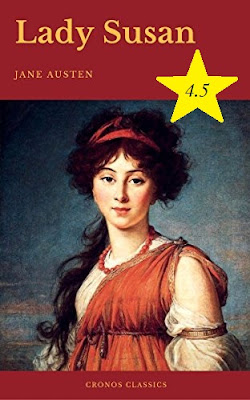
This has been the first time in a long time that I've read anything by Covenant Publishing. It is an publishing company associated with the Church of Jesus Christ of Latter-Day Saints. It is a publishing company that focuses on producing clean, engaging stories that are pretty much PG-13. It keep profanity, bedroom scenes, and gore to non-existent which can be nice when readers are wanting simple clean stories.
Bloodlines is about a girl named Skye who, upon arriving home from her flight attendant job--where she got saved by an attractive Scotsman from nearly getting run over, finds that her aunt has gone missing. She receives mysterious notes, emails, and calls to go to a safety deposit box and find the "other two missing pages" otherwise her aunt is going to die. She's gets to the deposit box and finds this ancient piece of paper with Old Latin words that she can't decipher. Over the course of the next hour she gets guns pointed at her, is practically kidnapped herself, and is saved again and again by this Scotsman who often appears out of no where. Upon getting help from an elderly professor, the Scotsman, Professor, and Skye head to France to find one of the "other pages" to help save her aunt. Why are so many people after her? They are all from different organization, so why do they want her? Can she trust this Scotsman who obviously isn't telling the truth to many things and knows more than he's telling? What does she have to do with Robert the Bruce and a King from France?
There were a few things I things that I rather enjoyed about this story. The plot, for the most part, was pretty good. It moved quickly and I did want to see what was going to happen next. There were parts that were
very predictable and others that were very dry, but it caught me enough that I continued reading.
I love the cover art. It is beautiful and very eye catching. Cover artist... *two thumbs up* Good job.
I did have some problems with this story though, so much so that my husband told me that all I did was complain and I should pick up a new book. The writing style had much to be desired. I felt like it was something I could have done in high school. It was
extremely telling and very little showing. I often felt like I in the story, just watching it from a foggy distance. I mean, we are in Paris and traveling through castles in Scotland! There is so much mood that can be developed here. Skye and Jack's feelings could have bloomed more/less depending on where they were at by using the setting as a trigger, but it wasn't. Just the fact that they were walking through cathedrals and tombs and we got so little descriptions. They could have been floating through space for as much description was given with an occasional table or buttress that was flying around (Pun intended). Ms. Peterson missed a lot of opportunities to really develop the story.
I also had a really hard time with Skye in general. For a good 3/4 of the story her internal monologue was how she doesn't know if she can trust Jack for falling for his dreamy eyes. She couldn't make up her mind, like a pubescent teenager. So intense and so angry, but then she'd turn around and check out his jaw or eyes or something that it gave me a bit of whiplash. Jack almost seemed like a MarySue where he was good at pretty much everything or knew everyone and was still the kind, compassionate, hot hunk of man meat. I don't know, there didn't seem to be much to him aside from the MarySue skills he could provide. The romance that was supposed to be blooming between them didn't strike me at all. It seemed like Ms. Peterson tried too hard to get them to work, but there was no real chemistry. Like a Florence Nightingale affect because he saved her over and over again. It was rather obnoxious.
For being a historical suspense I was rather upset that there wasn't more flashbacks to history, which is what the cover kind of told me would happen. Instead there was a lot of historical info-dump. It was bad. Important information to the story, but it was dry. I was very disappointed.
The ending was kind of a let down for me too. Not by much, but I still wanted more. She wrapped it up very quickly when I feel like a epilogue wold have been helpful because we don't know what would really happen after. There was a maybe we could do something, but *shrugs* who really knows? I'd like to have a confirmed "this is what happens."
Ugh, I don't know. I don't think I'd read this again. I don't even know if I'd read anything else Ms Peterson is writing. It's just really strange to me that she has written more books, that this isn't her debut novel because that's what this definitely feels like.
 Be Prepared was a cute little story about the trials of a ten year old misfit.
Be Prepared was a cute little story about the trials of a ten year old misfit.






